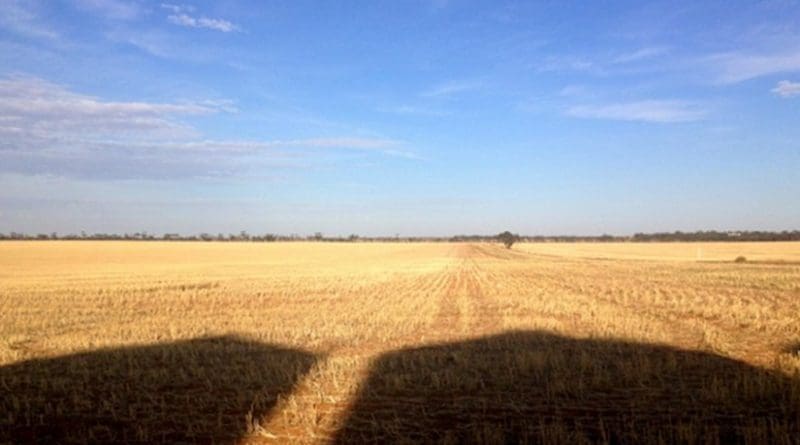Climate Change Threatens USD2.5 Trillion Losses In Agriculture – Analysis
By IDN
By Jutta Wolf
Global warming threatens to cause a huge economic damage to agriculture, adding up to the annual amount of roughly 0.8 percent of global GDP by the end of the century, which translates to losses of $2.5 trillion dollars, warns a new study.
But further trade liberalization in agricultural commodities could reduce financial damage globally by 65 percent, to 0.3 percent of global GDP (Gross Domestic Product), says Miodrag Stevanovićby, lead author of the study by a team of scientists of the Potsdam Institute for Climate Impact Research (PIK).
“Agriculture is very sensitive to climate change – even a small increase of global mean temperatures can have significant effects on regional crop yields, affecting both the profitability of agricultural production and the share of income spent on food,” says Stevanović.
Since climate change will widen the gap between developed and developing countries, reductions in trade barriers will have to be accompanied by measures for poverty reduction and social safety nets, says Hermann Lotze-Campen, chair of PIK’s research domain Climate Impacts and Vulnerabilities.
“Both global warming and free trade favour northern regions like Europe and the U.S., since producers’ gains increase as trade patterns shift northwards. At the same time, southern regions like Africa or India could theoretically reduce climate-change-related damages by half through more liberalized food markets,” explains Alexander Popp, co-author of the study.
“Irrespective of our assumptions on global trade, climate change will result in reduced crop yields in many areas. At the same time, intensifying production or expanding cultivated land into previously untouched areas may come at a risk: it could lead to additional greenhouse-gas emissions through tropical deforestation or increased fertilizer use.” This could then further enhance climate change pressure on agriculture, adds Popp.
The PIK researchers combined 19 different climate projections with simulations of crop growth to assess economic impacts of climate change in the agricultural sector.
While the magnitude of damage varies with different assumptions on crop productivity response to climate change, CO2 plant fertilization effect or socio-economic projection, the study nevertheless highlights the important role of trade as a key measure to partly reduce climate change impacts. Modelling challenges such as adverse effects of extreme weather events still remain.
If food prices increase due to climate change impacts, households will not only have to spend more on their food consumption, but could also face risks of insufficient access to food and malnutrition.
“The best way to avoid these risks is to limit climate change. However, for impacts that cannot be avoided, an open and diversified trade system can be an important adaptation option. It can account for changes in global patterns of agricultural productivity and thus allow for reducing production costs and enhancing food security,” add Lotze-Campen.

